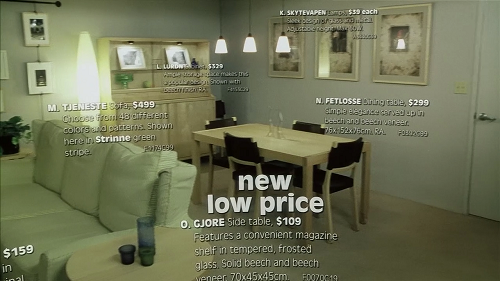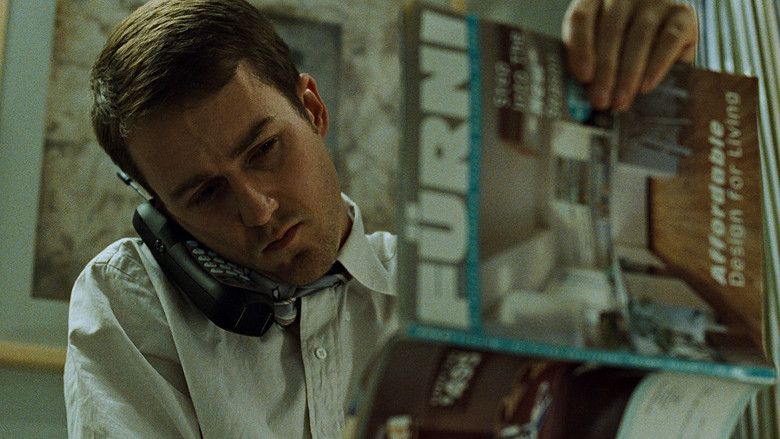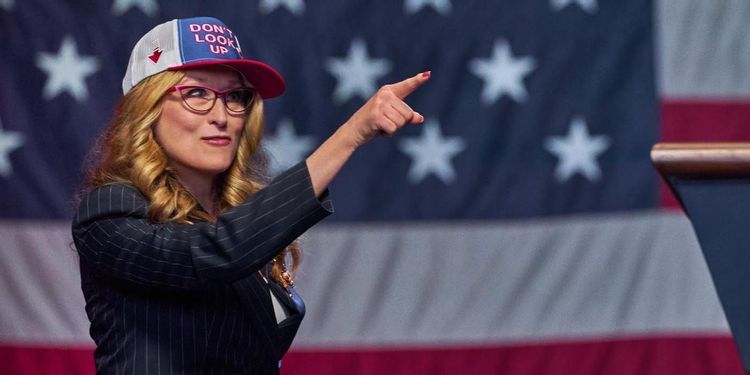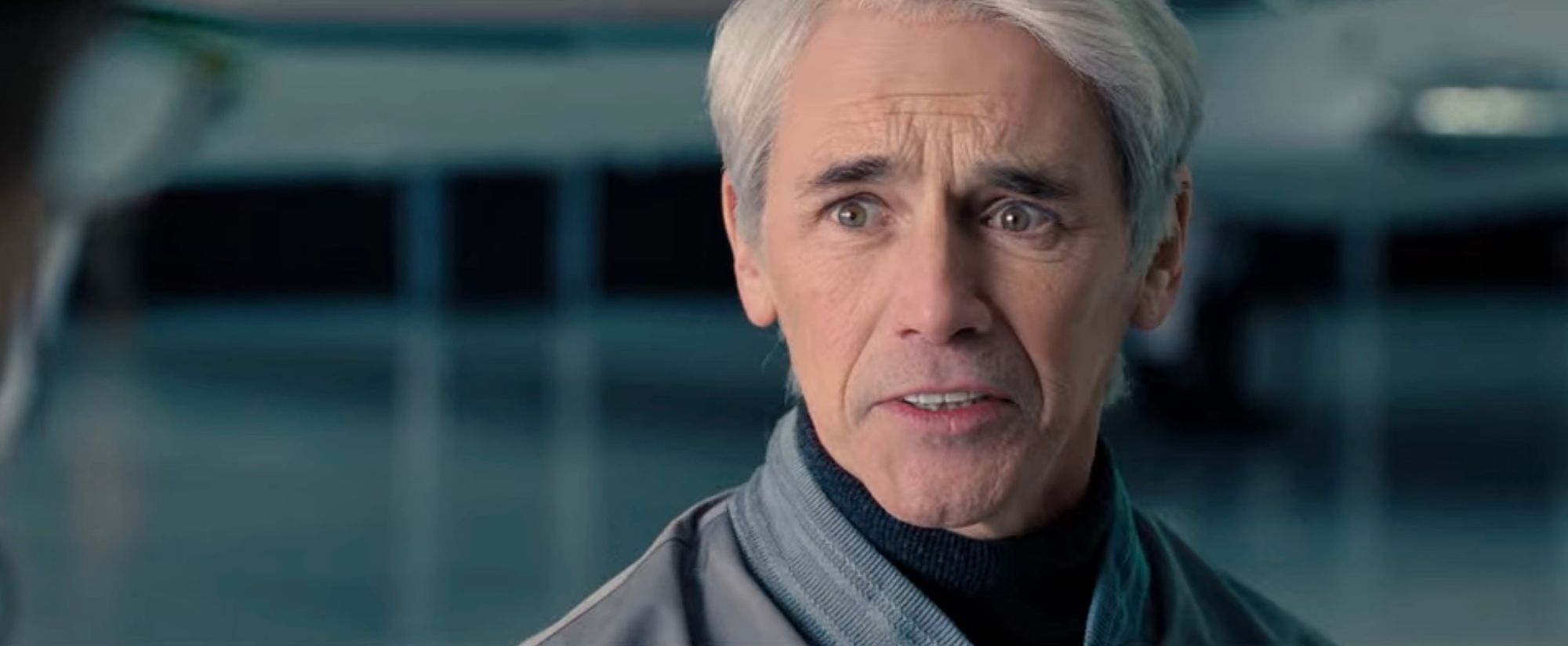"Don't Look Up": Satire in its Essence
Today we broadcast about the bizarre genre of satire and break down the new film by Adam McKay.


What do people care about? This is a very general question, we understand. But after a little thought, you might hear the following: global warming, politics, economics, social justice, faith, etc. But no matter how you think about it, people will always be concerned with the question of truth. Truth has always been the basis of argument and debate. People care about the truth, and they are willing to fight for it because they wanna know the truth. What if instead of the truth, they blatantly lied? What if we try to open our eyes to the true nature of things with obvious lies? Then satire comes to the rescue. Satire reveals existing problems through sharp humor and through grotesque distortions of reality. The truest example is Adam McKay's new film "Don't Look Up", which makes a very witty commentary on modern society. Let's discuss the movie and the whole genre of satire today. And, of cource, spoiler alert. Enjoy.
But before we continue, we want to remind you that here we promote the love of art and try to inspire you to take your camera and make a short film. Leave the boring pre-production routine to the Filmustage - automatic script breakdown - and focus on your creativity!
Also after a long time of hard work we are happy to announce the beta-testing of the new scheduling feature in the Filmustage software. Be one of the first to test the new functionality - click here for more detailed information.
Art by @nadi_bulochka
What is satire?
Satire is a sharp manifestation of the comic in art, which is a derogatory denunciation of various phenomena. Sarcasm, parody, irony, and the grotesque are the distinctive techniques that allow us to define satire. However, these are all just methods of creating grotesque and comedy, which are not possible if the satirical film has no target. In essence, the target is the object or phenomenon that the filmmakers want to criticize. The target can be a war or a political regime - it's all varying from film to film.
It is necessary to identify the target, because without it you will end up with a comedy that is either not funny or completely stupid. Satire can not only entertain, but also say something important. And strangely enough, the ideological and artistic methods of satire are not monotonous, so we'll look at three basic satirical art trends with examples of our favorite films.
Horatian satire.
Named after the Roman satirist Horace, this could be called the most recognizable type of satire, as it is imbued with pure comedic vibe. Horatian style can be said to be deliberate comedy, which with its explicit and flamboyant humor mocks the problem (the target). For example, Stanley Kubrick's iconic "Dr. Strangelove or: How I Learned to Stop Worrying and Love the Bomb" (1963) is a pure Horatian satire. With its comedic lightness and directness, Kubrick succeeded in making millions of people think about the absurdity of the Cold War and the arms race between the United States and the Soviet Union.
Juvenalian satire
Juvenalian style does not just mock the problem, but pounces on it. This type of satire does not just make the viewer laugh, but directly makes us think and analyze the problem. Juvenalian satire seems to pounce on public problems with satirical methods. It is a much more brutal, straightforward and understandable approach to questioning certain public issues.
Of course, it is still partly a comedy, but it is more dramatic and darker. The irony, sarcasm and parody here reveal the brutal truth of social inequality and discrimination, as in Neill Blomkamp's "District 9" (2009). Or the problem of visual content consumption as in Sidney Lumet's "Network" (1976).

The best example, however, is probably David Fincher's "Fight Club" (1999), which is also a Juvenalian satire. Fincher has created perhaps one of the best satires on consumer society today.


In addition, "Fight Club" itself is a witty critique of toxic muscularity. You can also find a lot of cool subtexts in the film, but they are all served up in incredibly bleak yellow and blue tones, minimalistic camerawork, and ultra-violence. It's brutal and straightforward - a perfect representation of Juvenalian satire.
Menippean satire.
At first you may think it is somewhat similar to Juvenalian style - and you would be right. But it is very important to grasp the subtle difference: Juvenalian satire criticizes an abstract system, the way we live, while Menippean satire stops at criticizing specific ideologies. The easiest way to illustrate this difference is to look at two films: remember Bong Joon-ho's "Parasites", which is violent in its criticism of social and economic inequality, so it is Juvenalian satire; now look at "Jojo Rabbit" by Taika Waititi, which also grotesquely criticizes fascism (a specific ideology), which makes it a Menippean satire.
Moreover, Menippean satire is not tied to a certain tone: it can be as serious in tone as Spike Lee's "BlacKkKlansman" or as absurdist in tone as "Jojo Rabbit's" critique of fascism.
Now that we have a deeper understanding of the specifics of the genre of satire in film, we can safely say that producing a satire that is funny, witty and deep in meaning is true art. So next we will take a look at the latest film by one of the best movie satirists of our time, Adam McKay.
"Don't Look Up''
At the end of 2021, Netflix gave us one of its biggest film projects: a stellar cast, a talented director and a huge production. It's a Hollywood lover's paradise. But it's not just a movie with Jennifer Lawrence and Leonardo DiCaprio - it's also a very funny satire. And namely the fact that the film belongs to the satire genre is what made it so popular.
As we have already found out, in any satire it is important to define the target: it is the purpose that allows us to understand which of the three styles of satire the film belongs to. So, no political or other ideology is spoken out loud in the "Don't Look up"; it is as if everything is critisized at once: the lies of political leaders, the duplicity of giant corporations, the hypocrisy of modern journalism... In fact, there are so many layers of satire in this movie that it is impossible to identify what exactly "Don't Look Up" is criticizing. Thus, we may consider that McKay mocks and thereby criticizes the way modern society, in particular American society, exists. So "Don't Look Up" is representative of the Juvenalian satire.



And it is no surprise that the film has become so popular. The specifics of its hype is that it can be understood not only by viewers from the United States, but from all over the world, because geography does not change one thing: people are alike. It is clear that satire does not reflect the real state of affairs, but in the image of the U.S. government we can see any other government; and the image of the billionaire "dreamer" who only wants to make the world a better place has generally become ingrained in pop culture. So how does Adam McKay hyperbolize reality and achieve comedy of the absurd?

First, irony. McKay is ironic not only directly at society, but also at pop culture, specifically at the image of the apocalypse in cinema. All the patriotism and pathos of films like "Armageddon" (1998) is transformed into ironic parody - and the audience realizes this and start to laugh not at the film, but with the film. Second, of course, is the visual style of the film. The picture itself looks sterile and even like an advertisement, which seems to display the sterility and artificiality of the fiction world in the film. However, from the very first minutes you can understand that the camerawork and editing in the film are inspired by documentary filmmaking. Generally saying, all of Adam McKay's work can also be dubbed the mockumentary genre, which means the creation of a work of art with the techniques of documentary filmmaking.
The contrast between the deliberate nonsence of what the film's characters are doing and the documentary way of shooting creates the absurdity. You could name it "the meta-level"of comedy. Moreover, the satire in the "Don't Look Up" is also reinforced by the harsh editing, which only strengthens the illusion of spontaneity and documentality.
And thirdly, the characters and actors. Even though the cast is solidly made up of stars, it doesn't take away from the fact that they are all very strong dramatic and comedic actors, which is the combination that satire needs. So when the characters scream or lose control, we laugh; when it's time for the dramatic ending, we wanna cry: this is a Juvenalian satire after all.
Afterword
So today we've looked at a very interesting genre of satire in cinema. If you enjoyed Adam McKay's "Don't Look Up", Filmustage highly recommends you check out his other works as well. We hope you found this blog interesting and look forward to seeing you next week. Take care!
From Breakdown to Budget in Clicks
Save time, cut costs, and let Filmustage’s AI handle the heavy lifting — all in a single day.